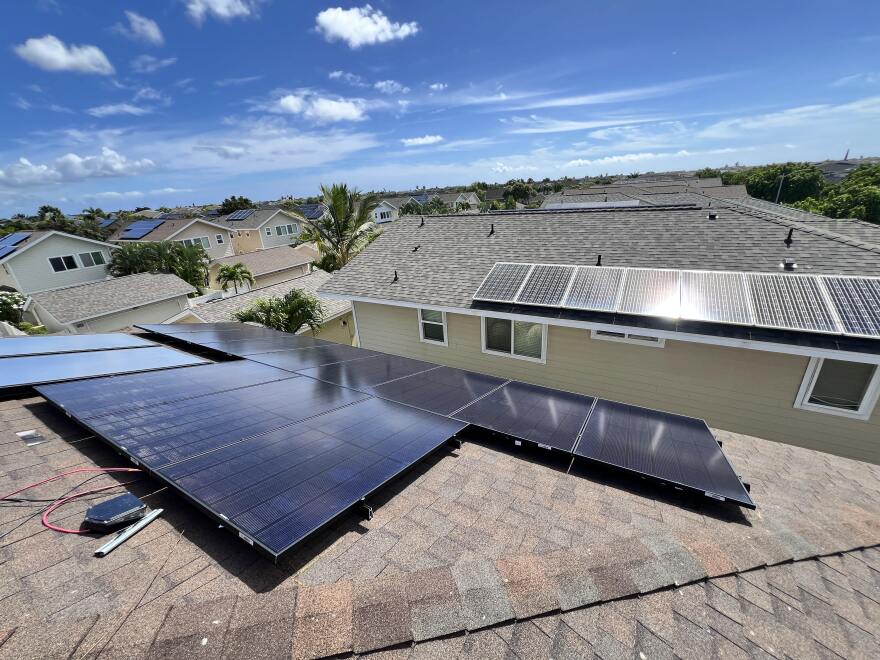With the end of a federal tax credit for rooftop solar on the horizon, some players in the solar industry want lawmakers to retool a state-level incentive.
The state's Renewable Energy Technologies Income Tax Credit can cover up to 35% of the cost of a new solar system.
"It's definitely been, I think, a big factor in people's decisions about whether or not to get rooftop solar installed," said state Rep. Nicole Lowen, who chairs the House Energy and Environmental Protection Committee.
The state tax credit currently has no sunset date, and Lowen said when to end the credit has been heavily debated among lawmakers.
Lowen said that conversation should be tabled while solar companies navigate the aftermath of the elimination of the federal tax credit.
"Right now, I don't think it would be an appropriate time to also look at cutting back on state tax credits," she said. "We want to try to help maintain those jobs and maintain our progress on getting rooftop solar installed."
But just last year, the Legislature passed a measure that set a five-year timeline to wind down the credit, along with other state incentives. The solar industry pushed back against the move, and Gov. Josh Green ultimately vetoed the measure.
David Gorman with the solar company RevoluSun hopes that another bill to end the state tax credit doesn’t crop up this session.
Instead, he suggested that lawmakers could make the credit a little more user-friendly for customers. Right now, the tax credit covers up to 35% of the cost of each 5-kW system installed, with a cap of $5,000.
"It gets a little hard to comprehend for your average homeowner," Gorman said. "Maybe making it just 25% of the total installed cost makes it a little bit more digestible."
Elliot Lucas of Solar Kauaʻi wants lawmakers to go further and remove the $5,000 cap on the tax credit.
"That would be a huge thing. The reason why the federal credit is such a big deal is because it has no cap… so you get 30% back on everything that you spend money on," he said.

But Matias Besasso of Rising Sun Solar called the idea that lawmakers might lift or remove the cap a "pipe dream."
"I have never seen any movement on the removal of the cap," he said.
With the industry already bracing for the loss of federal support, Besasso said he felt hesitant towards any more changes at the state level.
"I hate to see, just in an effort to get more subsidy, that we break the machine in the process," he said. "As backwards as it may sound, I want to keep [the] status quo, because that's what's been working."
However, Besasso added that he was open-minded about efforts to make the credit more beneficial to low- and middle-income families, such as lifting the cap for people below a certain income threshold.
Lowen said that she was open to the idea of retooling the credit to target less affluent households.
"There's also been concerns, in addition to the conversation about the sunset date, about whether we should be giving a tax credit for solar to people who can well afford it," she said.
"That might be one way to offset potentially increasing the tax credit in the short term to help companies get through this hard time."
Hawaiʻi Public Radio exists to serve all of Hawai’i, and it’s the people of Hawai’i who keep us independent and strong. Help keep us strong to serve you in the future. Donate today.





